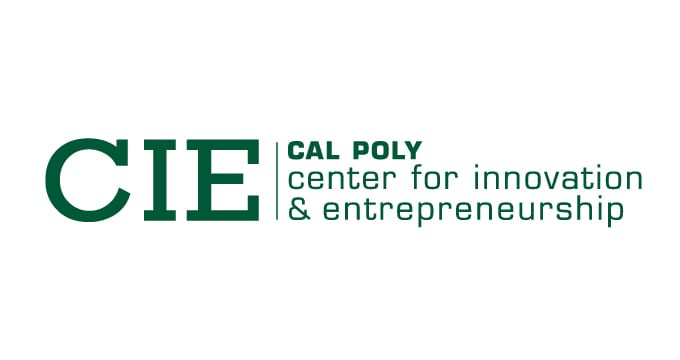Cal Poly’s Center for Innovation and Entrepreneurship (CIE) has accepted eight startup companies into this year’s SLO HotHouse Summer Accelerator program, an intense 13-week program designed for students and recent graduates who have developed new ventures and want help making them succeed.
The program provides $10,000 in seed money, hands-on strategic business guidance from faculty and mentors, and dedicated office space during the summer at SLO HotHouse. Companies receive training, introductions to investors, and resources to help move their venture forward. At the end of the program, they will have an opportunity to pitch their ideas to investors during Demo Day.
The ventures represent a variety of concepts, including virtual reality, devices that aid in preventing sexual assaults, environmentally friendly transportation, and smart irrigation technology for growing wine grapes.
“We have an outstanding group of high-growth startups participating in this year’s accelerator. We are excited to match these companies with mentors in their industries and make them part of the San Luis Obispo entrepreneurial ecosystem so they can grow and make a lasting impact.”
– Lori Jordan, manager of student innovation programs
More than 25 applicants representing disciplines from across campus competed for a place in the sixth annual accelerator program. Twelve final teams presented their ideas to a panel of judges.
“Our Accelerator is designed to attract and produce early-stage startups and rapidly increase the odds of each startup’s success,” said CIE Executive Director Tod Nelson. “By having this type of program in San Luis Obispo County, entrepreneurs – the risk takers, innovators, dreamers – can build their companies here and keep the knowledge they’re gaining right here. This is a long-term play: these startups will be pillars of our local economy in 10 or 20 years.”

Left to right: Jared Becker, Sonya Bengali, Aryiana Hanson, Ashley Tovar, Naomi Fuad and Richard Riedl. Back row (l to r): Michael Wong, Nicholas Verhage, Tavin Boynton, Matthew Maxwell, Ryan Stojanovich, Adrian Eaton, Elan Timmons, Maxwell Fong, Griffin Paul, Lucas Toohey, Jacob Copus, Gannon Daynes and Loren Sunding.
There are eight 2016 CIE SLO HotHouse Accelerator companies for 2016. AT Irrigation, conceived by Adrian Eaton, mechanical engineering; and Timothy Holst, wine and viticulture. This company aims to revolutionize wine-grape growing by reducing water consumption and improving crop quality through a smart network of soil moisture probes and precision valves.
Abode Venues is a residential venue directory that helps people find a custom, affordable, private residence to use for their meeting, event or wedding. It was created by Ashley Tovar, liberal studies; and Naomi Fuad, graphic communications (along with Cuesta College student Aryiana Hanson).
BoltAbout.com, developed by Matthew Maxwell, business administration; Tavin Boynton, graphic communication; and Ryan Stojanovich, agriculture business. This site rents fast and environmentally friendly electronic-bikes to college students.
Current, the brainchild of Elan Timmons, mechanical engineering; and Maxwell Fong, industry technology and packaging, is a company that developed a phone case to aid in preventing sexual assaults with a stun gun that automatically alerts the police.
Everyday Bike Components produces a high-quality bicycle cargo solution for bicycle commuters. Richard Riedl, mechanical engineer; Loren Sunding, manufacturing engineer; and Griffin Paul, biomedical engineer, started this venture.
ObserVR, created by Lucas Toohey, business administration; and Jacob Copus, computer engineering, is a virtual reality application that allows a user to stream multiple 2-D videos in a 3-D environment, creating an immersive environment for simultaneous viewing.
PCKit, a venture that ships customers the parts and instructions they need to build their own gaming desktop, was created by students Nicholas Verhage, computer engineering; Michael Wong, industrial engineering; and Kiley Becker, business administration.
Spectrvm, designed by Jared Becker, mechanical engineering, and Gannon Daynes and Sonya Bengali, business administration, is an insert for hydration backpacks that allows people to feel the music, by vibrating bass frequencies from live DJs at electronic dance music (EDM) festivals, through the body.

